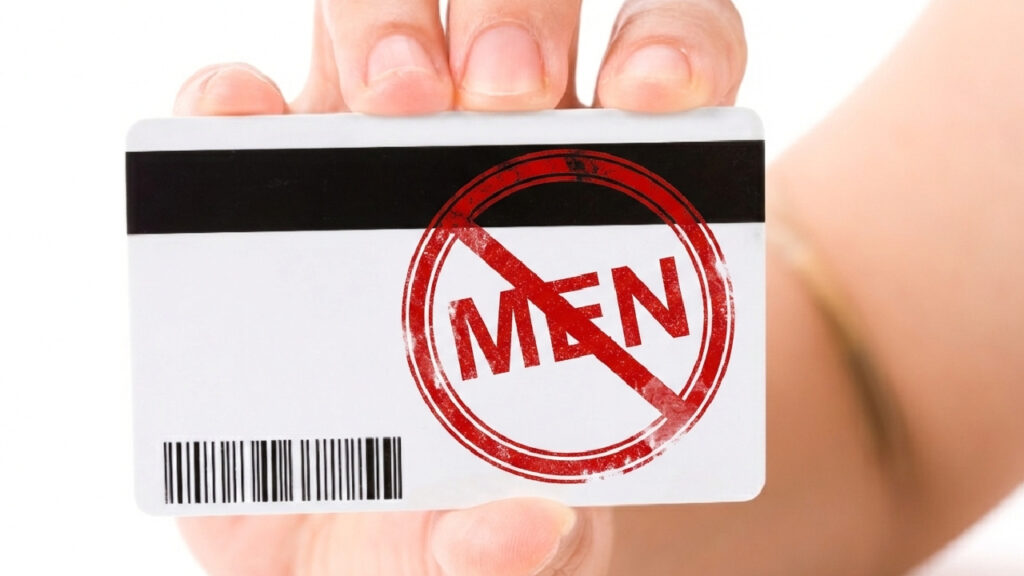
‘Sorry Boys, We’re Out’: Why American Women are Going Full 4B After Trump’s Win
In the wake of Donald Trump’s 2024 election victory, American women are looking abroad for inspiration. And they found just that it in South Korea’s radical “4B” movement. Initially emerging as a fringe feminist protest, 4B advocates a refusal of marriage, dating, sex, and childbirth with men as a form of resistance.
Thanks to social media, U.S. women frustrated with misogynistic policies are adopting their own version of the 4B ethos.
What is the 4B Movement, and Why Now?
4B is short for biyeonae (no dating), bisekseu (no sex with men), bihon (no marriage), and bichulsan (no childbirth). It is a cultural movement emerged in South Korea around 2018, spurred by the #MeToo movement. Yale Ph.D. candidate Meera Choi explains that it’s a reaction to “how the government and the state and the men are failing” women, prompting them to withdraw from relationships as a form of protest. “Not rewarding men by not participating in heterosexual relationships,” she says, became a way to cope.
In the U.S., Trump’s re-election has set off a new wave of feminist discontent. Exit polls showed that, despite assumptions, Trump’s support among young women wasn’t crushed. Instead, he found a strong ally in young male voters, igniting fears that women’s rights are disposable.. Now, with calls for a U.S.-adapted 4B movement on the rise, it’s clear that for many, this is about reclaiming autonomy, one refusal at a time.
American Women and Their Own 4B Revolution
Since the election, TikTok videos have been flooded with women saying enough is enough. Alaina Demopoulos of The Guardian covered the phenomenon. She interviewed, McKenna, a 24-year-old woman living in a conservative U.S. state, canceled all her dating plans post-election. “It’s heartbreaking to know that in this country, you only matter if you’re a straight white man,” she said. McKenna has sworn off heterosexual relationships “until I have my rights back.”
“Girls, it’s time to boycott all men!” one TikToker posted, amassing millions of views. This sentiment is hardly niche. According to Google, “4B” search queries surged by 450% after the election. In fact, there’s a particularly high interest in progressive states like Colorado, Minnesota, and Washington, D.C.
The message is clear: “If women’s sole social value is as breeding animals and sexual objects,” 4B proponents say, then “they will simply decline either to breed or to self-objectify.”
A Feminist Retort to the “Manosphere”
What’s fueling the fire behind 4B is not just the election outcome but the growing misogynistic presence of Trump’s allies. Figures like Nick Fuentes, a far-right nationalist, celebrated on social media: “Your body, my choice. Forever,” he tweeted after Trump’s win. This, along with anti-abortion rhetoric, is pushing women to look to more extreme measures to take back control.
“When men come on to me, I’m just gonna push back,” McKenna shared. She’s not alone. Social media is flooded with hashtags and posts declaring a sex boycott. Whether or not it’s sustainable is debatable, but the sentiment is unmistakable. Women are ready to protect their bodies, rights, and autonomy. They’re willing to do so by opting out of the structures men use to control them.
South Korea’s Gender Wars Meet U.S. Feminism
In South Korea, 4B grew from the “Escape the Corset” movement, where women rejected beauty standards by chopping their hair and shunning makeup. “They counted fertile women like they counted the number of livestock,” one feminist blogger wrote, summarizing the sentiment of a government that tried to incentivize marriage and childbirth amid a plummeting birth rate.
Sound dystopian yet? That’s the point. For 4B’s advocates, this isn’t just a movement; it’s a stand against being valued solely for reproductive potential.
In the U.S., the sentiment is finding fertile ground among young women fed up with the idea that their freedoms are political bargaining chips.
Can 4B Last in the United States?
4B doesn’t align neatly with American feminism, which tends to prioritize “choice” over collective action. But it’s precisely this radical discipline that draws American women to 4B right now. As Rolling Stone notes, U.S. women are realizing “sex, marriage, birth, and motherhood” aren’t givens they want to comply with anymore. Instead of bending to misogynistic cultural norms, they’re turning their backs entirely.
There’s one question the 4B movement raises for American feminists: what are you willing to sacrifice for the world you want to build? As many suggest, 4B’s philosophy is to ensure your independence by rejecting societal roles that only value you for your fertility and sexual appeal. It’s a radical idea but one that resonates for women who see a second Trump term as more than just politics—as a threat to their personhood.
The Future of 4B in America
If Trump’s re-election has shown anything, it’s that American women are done quietly bearing the brunt of misogyny and political regression. With 4B’s arrival on U.S. soil, the message is clear: women are reclaiming their power by removing themselves from the cycle of patriarchal control. Whether the movement becomes a long-lasting feminist phenomenon or a temporary protest, it’s a powerful reminder that American women won’t just stand by as their rights are taken away.
For now, the choice remains individual, but the movement’s popularity signals that a critical mass of women in the U.S. are willing to withdraw rather than comply. And in this cultural moment, maybe that’s the loudest protest of all.




